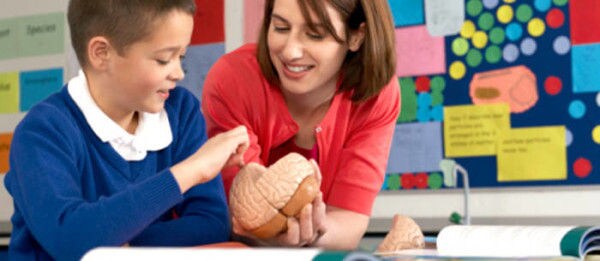Most children face challenges with learning at various times of their school journey. The desire of most parents is to bolster their kids love of learning, educational self-esteem and academic success whenever possible. Tutors can normally help with these goals.
Here are some examples how tutoring can make the difference:
1. Establishing a Foundation
Children who have just begun secondary school have a lot of work to do. They are learning mathematical building blocks and acquiring reading comprehension. When kids struggle to master these early skills they can have difficulty grasping more challenging concepts, yet the school system will not typically offer added support unless they are behind. These gaps become greater as children get older, but tutoring can support their ability to acquire comprehension skills and decipher concepts before the situation becomes too stressful.
2. One-on-One Learning
Overcrowded classrooms are another issue which often affects a child’s ability to learn. Large class sizes by definition, limit a teacher’s ability to give kids one-on-one time to explain concepts fully or to answer every child’s question. Children may also become embarrassed to keep asking questions if they are struggling. Tutoring gives your child the opportunity to take as much time as they need to understand the work in front of them.
3. Confidence Building
Kids are so eager to please their parents that sometimes, they don’t communicate their struggles fully. A good tutor will take time to get to know your child, creating a safe space for them to discuss issues that might be affecting their ability to learn. This can enhance their feelings of self-worth and esteem as well as bolster up their skills at school.
4. Strength-Based Training
Tutoring a child in their strong subjects as well as their weaker ones helps to build confidence that will support their across-the-board learning in all subjects.
When parents only get tutoring for the weak areas, a child may feel defeated or think that they are a loser. Tutors can spend, for example, 25 minutes working on a weaker skill like maths and after a break, 15 minutes on a strength-based subject, such as reading skills or even music. Then you can finish up with 15 minutes of intense work on the weaker subject.
5. Helps with Transitions
There are, however, individual differences between schools that might make it harder for your child to learn if you have moved to a new area. Throw in a change of classmates and unfamiliar environment and you may find your child craving the support of a tutor who is focused solely on their needs to help them make the transition.
6. Maintain Skills Over Summer
Tutoring can be beneficial to children during the summer months, if you have concerns that they will lose some of the ground they gained over the past year.
7. Exam Revision
Education is high stakes now and kids increasingly need to gain good grades on exams, such as GCSE’s. Having a private tutor who is trained in subjects at these levels can really help a child perform up to their best.
8. Eliminates Homework Wars
The most stressful part of the secondary school child-parent relationship is homework! By the time it’s homework time, most parents are pooped. Whether they work full time or are busy shuffling their kids around, making dinner and supervising bath and bed time routines, parents are not the ideal homework monitor, particularly given how much work children have. Tutors can take the pressure off and add to the family’s quality of life while teaching kids to be responsible for their own work.
Most children can benefit from having someone focused on them who can support their learning and help them to understand and accept their own learning styles. Every kid is a rock star, even if they have areas where they feel challenged. A good tutor can help them to unlock the door to self-confidence, love of learning and self-acceptance, to boot.

